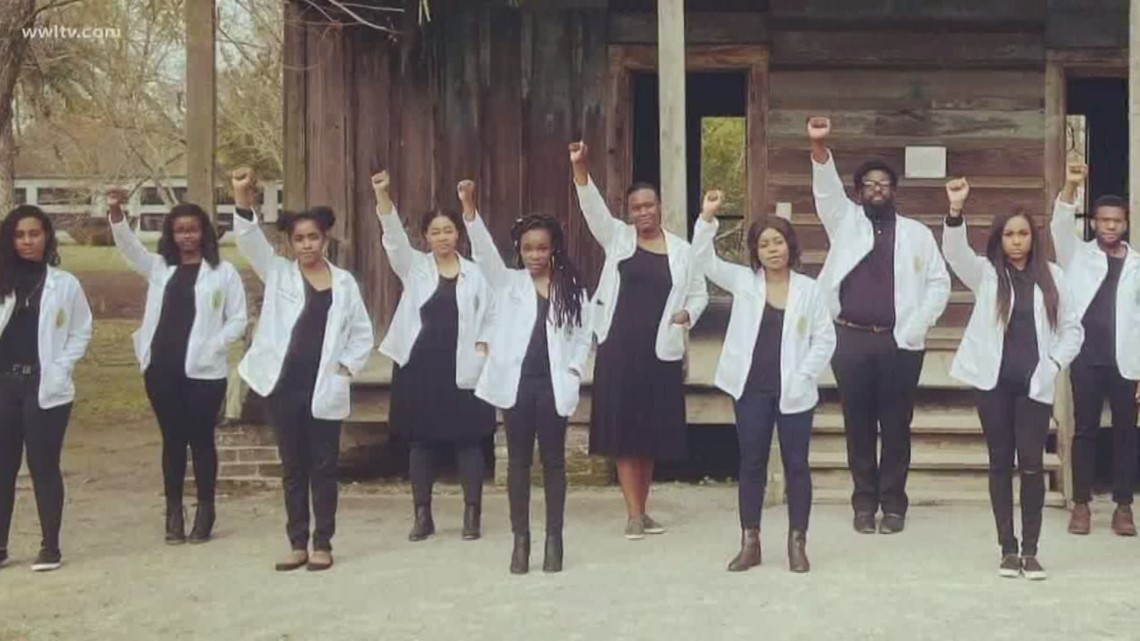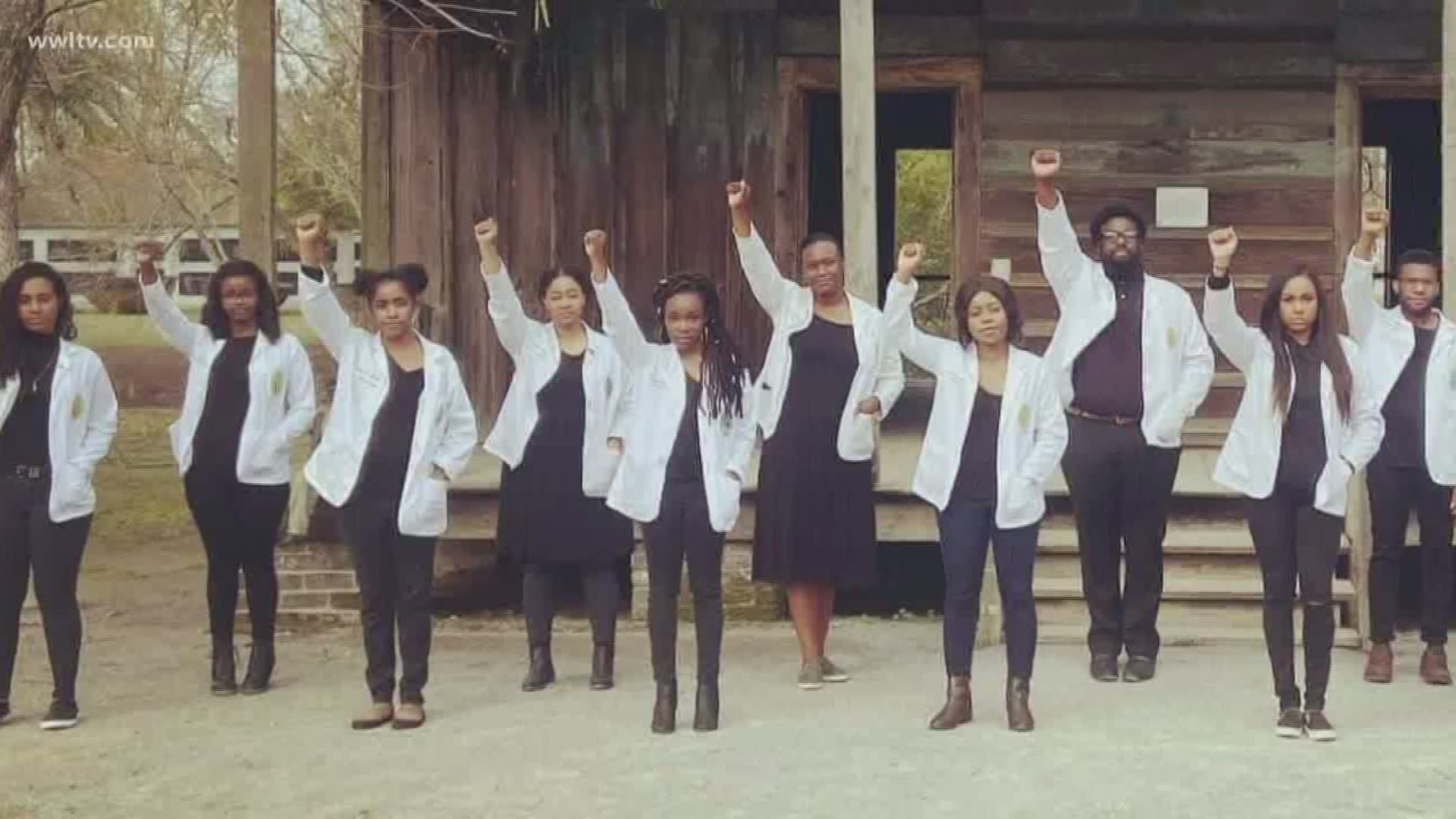NEW ORLEANS — Students from the Tulane University School of Medicine made headlines around the world. It's because the next generation of pediatricians, surgeons, and psychiatrists is looking back at the ancestors who laid their foundation.
"When I was presenting this to some of my classmates, I told them. I was like 'yo, this is going to be iconic. This will be iconic'," said Russell Ledet, Ph.D.
Dr. Ledet is a second-year student at the Tulane University School of Medicine. He is the psychiatrist-in-training behind viral photos taken during a visit to the Whitney Plantation in St. John the Baptist Parish.
The photos feature 15 black doctors in the making, standing in front of former slave quarters on the plantation. Dr. Ledet said every students' visit to the site was unique. He said he had a conversation in his head with the ancestors who once lived there.


"I think everyone went there with a different expectation, and everyone left with a different experience," said Dr. Ledet. "We were reminded that we came here through resiliency. We kind of had a saying that came out of this, which is, 'resiliency is in our DNA'."
The photos have been shared thousands of times on social media, and they have sparked conversation around the world about how much the U.S. has changed — but still how far there is to go.
"A lot of times, there's no representation. Forget misrepresentation. There's no representation of people of color in white coats on walls," said Dr. Ledet.
Ph.D. candidate Bennetta Horne, from the Office of Multicultural Affairs at the Tulane University School of Medicine, helps keep all these students in white coats.
"I'm confident that they're going to be great physicians. I'm more proud that they're great people," said Horne.
She knows the students personally, having interviewed them for admission and helping with adjusting to med school life along the way. Horne pushes them to be their best.
And while she didn't expect the overwhelming response to the photos, she said it shows representation is critical in the big picture.
"A black girl or a black boy whose never seen a black doctor — if you don't see that as a possibility, you have no way to conceive that that could be (you)," said Horne. "So this picture can show them 'they look just like me, and if they can do it, I can do it'."
It's a future those who lived on the Whitney Plantation may never have imagined.
"That history is just part of what we're working with to be where we are now," said Dr. Ledet.
Dr. Ledet said he'd like to see thousands of copies of the photos hanging in classrooms across the country to motivate and inspire the next generation of diverse doctors.
All of the students are descendants of enslaved people, except for one native of Nigeria, according to NOLA.com.
► Get breaking news from your neighborhood delivered directly to you by downloading the FREE WWL-TV News app now in the IOS App Store or Google Play.

